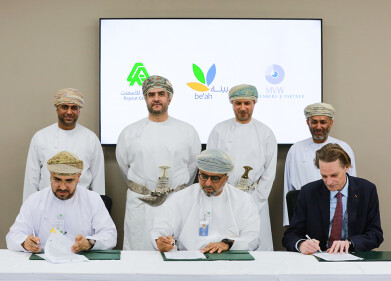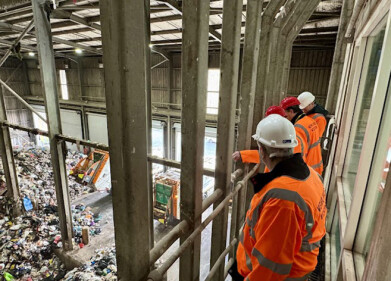Waste management
COP26 - Does Glasgow Have Its Own Pollution Problem?
Nov 08 2021
Glasgow was selected as the host venue for the 26th meeting of the Conference of the Parties to the Framework Convention on Climate Change (COP26) for a number of reasons. The city is ranked fourth in the Global Destination Sustainability Index, has targeted becoming carbon neutral by 2030 and has experience of hosting major events such as the Commonwealth Games and European Gymnastics Championships.
Despite these impressive credentials, there are concerns from some quarters that Glasgow might not be as environmentally woke as it purports to be. From questions over the accommodation shortages in the city to striking movements by its municipal workers, Scotland’s largest city has come under fire as it attempts to hold the most significant climate conference since the Paris summit in 2015. Here’s a closer look at those criticisms.
Cleaners’ strike
Perhaps the biggest embarrassment for Scotland’s First Minister Nicola Sturgeon is the fact that thousands of the city’s council workers, including rubbish collectors and street cleaners, have been industrial action as of Monday 1st November. Their strike has been planned to coincide with the kick-off of COP26 and a last-minute attempt to come to an agreement fell through the night prior.
What that means is that the city’s streets outside of the COP26 ‘Blue Zone’ are likely to be awash with uncollected rubbish and debris. While technological solutions have paved the way for waste materials to be recycled and reused as fuel feedstocks in recent years, that kind of sustainable infrastructure falls to pieces without the boots on the ground to back it up. As a result, there are expected to be as many rodents in attendance at COP26 as there are world leaders.
Accommodation shortages
Although Glasgow does have experience in hosting major events before, it has never witnessed anything quite like COP26. Some 30,000 delegates are expected at the conference, while the city has enough hotel rooms to house only half that figure. As a result, prices have been soaring and ordinary residents have been cashing in by renting out their spare rooms for exorbitant fees.
Still, the shortfall has not been met. Instead, organisers have brought in cruise liners to provide temporary accommodation for those unable to hang their hat on dry land. Given that a cruise ship is believed to generate as many emissions as around 700 trucks, that means that Glasgow’s accommodation shortage could have a sizable impact on the air pollution in the city for the duration of COP26.
Plastic pollution
Meanwhile, the River Clyde isn’t just hosting gargantuan vessels at the moment. Huge swathes of plastic pollution have also washed up on its shores in the run-up to the conference, providing attendees with a stark reminder of why they’re there. “Just as the finishing touches were being made to transform The Ferry on the River Clyde into the Extreme Hangout at COP26, along came a floating island of garbage littered with single-use plastic,” explained a spokesperson for the venue.
Of course, Glasgow is far from the only city to suffer from the problem of plastic pollution; indeed, it’s estimated that some 11 million tonnes of the stuff end up in our oceans each year, and that figure is projected to reach 29 million by 2040 if nothing is done. While some innovative solutions are in the pipeline – including an enterprising combination of forensic science and artificial intelligence – they haven’t come quick enough to spare Scotland’s blushes at COP26.
Events
Apr 08 2025 Targi Kielce, Poland
Apr 08 2025 Bahrain
Apr 10 2025 Beijing, China
Apr 10 2025 Beijing, China
Apr 15 2025 Moscow, Russia














